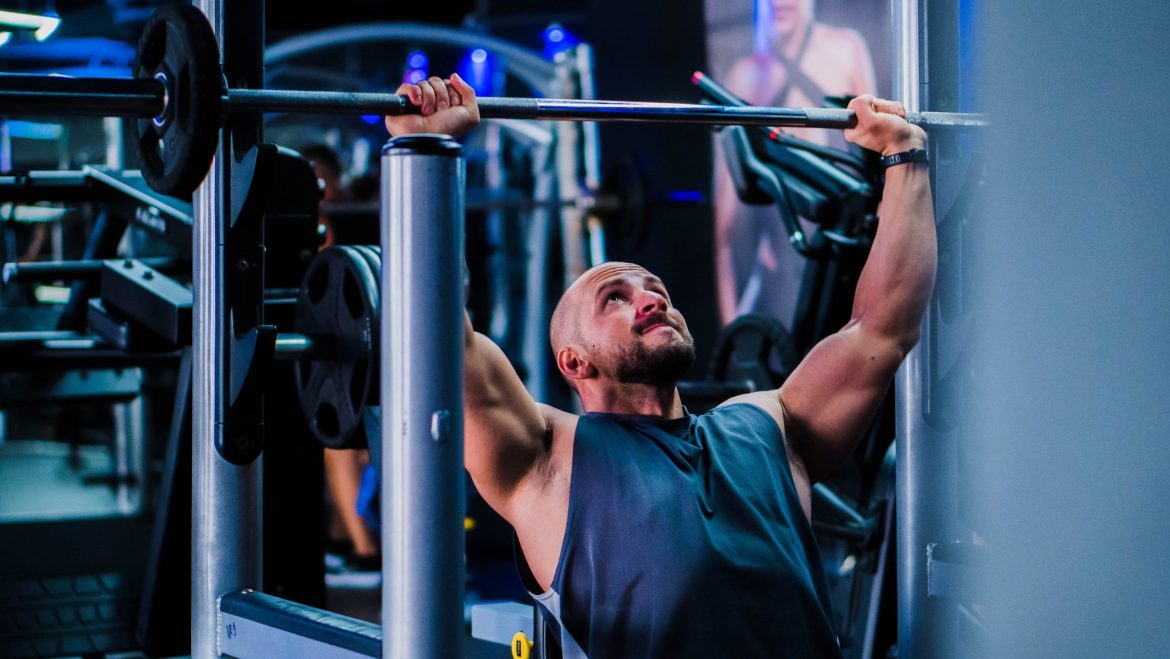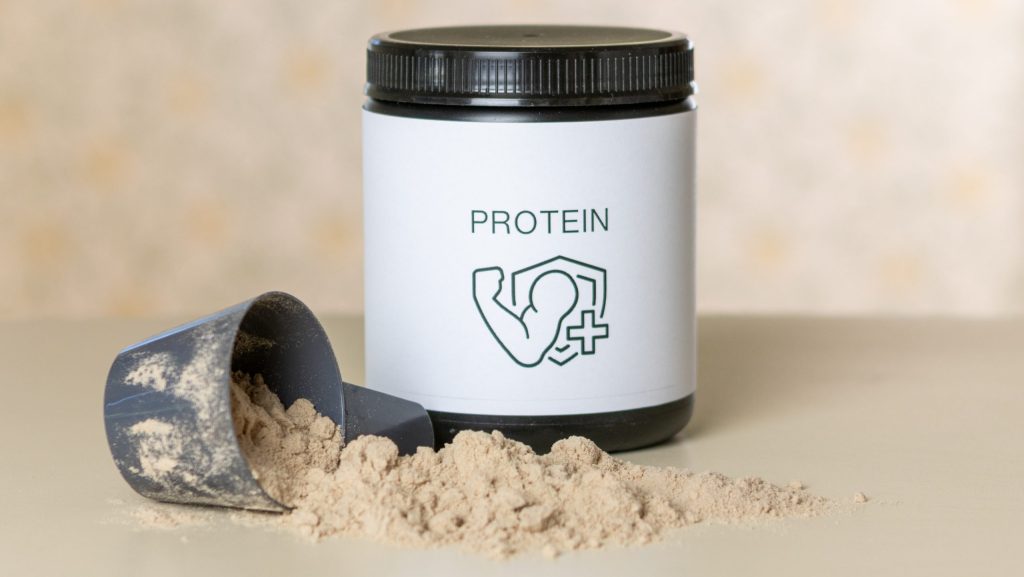Understanding workout nutrition and the timing of intake is crucial for anyone looking to enhance their fitness outcomes. For beginners, the challenge often lies in deciphering the wealth of information available and applying it effectively to their routines. This guide aims to clarify the fundamentals of workout nutrition, focusing on the importance of what you eat and when you eat, to optimize workout results.
“Optimal nutrition can increase muscle recovery rate by up to 20%, underscoring the significance of dietary timing in relation to exercise.”
The core topics covered in this guide are designed to provide a comprehensive overview of workout nutrition:
- Introduction to Workout Nutrition: Highlights the significance of nutrition in achieving fitness results.
- Pre-Workout Nutrition Essentials: Details the importance of pre-exercise meals for energy and performance.
- Nutrition During Workout: Discusses strategies for maintaining energy and hydration during exercise.
- Post-Workout Recovery Nutrition: Focuses on the nutrients needed for recovery and muscle growth after exercise.
- Supplements for Fitness Beginners: Offers guidance on the use of supplements to support fitness goals.
By integrating primary keywords such as “Workout Nutrition,” “Nutrition Timing,” and “Fitness Beginners,” along with secondary keywords like “Ultimate Workout Nutrition Guide,” “Pre-workout Nutrition,” “Post-workout Recovery,” and “Macronutrients for Fitness,” this introduction sets the stage for a detailed exploration of each topic. It ensures the information is not only comprehensive but also accessible, aiming to equip beginners with the knowledge needed to make informed nutritional choices that support their fitness journeys.
The goal of this guide is to demystify the concepts of workout nutrition and timing, providing readers with clear, actionable advice. It addresses common questions and challenges faced by those new to fitness, offering evidence-based recommendations to enhance workout effectiveness through optimized nutrition.
This guide serves as a foundational resource for fitness beginners, offering insights into the critical role of nutrition in workout performance and recovery. By applying the principles outlined here, readers can improve their fitness regimen, achieve their goals more efficiently, and maintain a healthy balance of nutrients to support their overall health.
Introduction to Workout Nutrition
Understanding the basics of workout nutrition is crucial for enhancing fitness outcomes. Nutrition plays a pivotal role in workout performance, recovery, and overall health. This section aims to clarify the fundamentals of nutrition in relation to fitness, providing beginners with the necessary knowledge to make informed dietary decisions.
Key Areas Covered:
- The Role of Nutrition in Fitness
- Nutrition Basics for Beginners
- Common Nutrition Myths Debunked
The Role of Nutrition in Fitness
Nutrition significantly influences physical performance and recovery. A balanced diet provides the energy for exercise and the nutrients needed for muscle repair and growth. The primary energy source during high-intensity workouts is carbohydrates, while fats fuel longer, less intense exercise sessions. Protein supports muscle repair and growth, emphasizing the importance of balanced macronutrient intake.
Nutrition Basics for Beginners
For those new to fitness, understanding nutrition fundamentals is essential. Nutrition can be simplified into macronutrients (carbohydrates, proteins, and fats) and micronutrients (vitamins and minerals). Each plays a specific role in supporting physical activity and recovery:
- Carbohydrates: Main energy source, especially for high-intensity workouts.
- Proteins: Essential for muscle repair and growth.
- Fats: Important for overall health, hormone production, and nutrient absorption.
- Hydration: Critical for performance and recovery, with water intake crucial before, during, and after exercise.
“A balanced diet can improve workout recovery time by up to 20%, showcasing the direct impact of nutrition on fitness progress.”
Common Nutrition Myths Debunked
Numerous myths about nutrition and fitness lead to confusion. For instance, the belief that all fats are harmful ignores their essential role in health. Another myth is that protein intake alone dictates muscle growth, overlooking the need for a balanced diet and consistent exercise. Correcting these misconceptions is vital for a holistic approach to workout nutrition.
In summary, a solid understanding of workout nutrition is fundamental for achieving fitness goals. This guide provides an overview of nutrition’s role in fitness, essential dietary basics, and clarifies common myths, laying a foundation for informed dietary choices. The subsequent sections will delve into pre-workout nutrition essentials, offering insights into optimal body preparation for performance.
Pre-Workout Nutrition Essentials
Proper nutrition before a workout is crucial to maximize performance and optimize energy levels. This comprehensive guide focuses on the essentials of pre-workout nutrition, including meal timing, selecting the right foods, and effective hydration strategies. By adhering to these principles, individuals can prepare their bodies for peak performance during exercise.
“Eating a meal rich in carbohydrates 3 hours before exercise can increase performance levels by up to 20%, underscoring the importance of meal timing in fitness.”
Timing Your Pre-Workout Meals
The timing of your pre-workout meal is crucial for maximizing the body’s energy and performance during exercise. Consuming a balanced meal 2 to 3 hours before working out allows for optimal digestion and nutrient absorption, ensuring that the body has the necessary fuel for exercise. A small, easily digestible snack 30 to 60 minutes before exercise can provide a quick energy boost, perfect for those needing an additional surge of energy right before their workout.
Optimal Foods for Pre-Workout
Selecting the right foods before exercising is vital for maintaining energy levels and enhancing performance. A balance of carbohydrates, proteins, and fats in pre-workout meals and snacks can ensure sustained energy release and muscle support during exercise.
| Food Type | Examples | Benefits |
|---|---|---|
| Complex Carbs | Whole grains, fruits | Sustained energy release |
| Lean Proteins | Chicken, tofu, legumes | Supports muscle function |
| Healthy Fats | Avocados, nuts | Energy for longer workouts |
| Hydration | Water, sports drinks | Improves endurance, prevents fatigue |
Hydration Before Exercise
Hydration is a key component of effective workout preparation. Being well-hydrated before starting a workout can improve endurance, prevent early fatigue, and help maintain concentration. It’s recommended to increase water intake throughout the day leading up to a workout and consider a sports drink with electrolytes shortly before beginning to ensure optimal hydration status.
Nutrition During Workout
Optimizing nutrition during workouts is crucial for maintaining energy levels and maximizing performance. This section explores intra-workout nutrition strategies, emphasizing maintaining energy levels, effective hydration, and utilizing quick energy sources to support sustained performance throughout the exercise session.
“Adequate hydration can improve endurance by up to 20%, highlighting the critical role of water and electrolytes in sustaining workout performance.”
Maintaining Energy Levels
It’s vital to sustain energy levels during exercise to ensure optimal performance and benefit maximization from your workout. Strategies include:
- Consuming carbohydrates during the workout, especially for sessions lasting longer than an hour, to provide a continuous energy supply.
- Utilizing easily digestible carbs like bananas or energy gels can prevent energy dips and support endurance.
Integrating keywords such as “intra-workout nutrition” and “sustained performance” here can emphasize the importance of these strategies.
Hydration Strategies During Exercise
- Water: The cornerstone of hydration, particularly for workouts under an hour.
- Sports Drinks: Ideal for longer sessions, providing not just hydration but also electrolytes and energy.
- Electrolyte Tablets: A convenient way to replenish essential minerals lost through sweat, suitable for adding to water.
Incorporating “hydration strategies during exercise” and “electrolyte balance” here highlights the necessity of staying hydrated and maintaining electrolyte levels for optimal workout performance.
Quick Energy Sources
For immediate energy boosts during workouts, consider:
- Energy gels and chews offer rapid-access carbs and are designed to be consumed without causing digestive issues.
- Small portions of sports drinks can also provide a quick carbohydrate source, alongside hydration benefits.
Keywords like “quick energy sources” are crucial here, underlining the options available for athletes to maintain their energy levels without interrupting their workout flow.
Post-Workout Recovery Nutrition
Understanding the principles of post-workout recovery nutrition is crucial for enhancing muscle repair, growth, and overall fitness progress. This comprehensive guide focuses on the critical aspects of recovery nutrition, including the optimal recovery window, the importance of protein and other nutrients following exercise, and effective rehydration strategies to maximize recovery and prepare for future workouts.
“Protein intake immediately after exercise can increase muscle protein synthesis by up to 50%, making it a critical component of post-workout recovery.”
The Recovery Window
The period immediately following exercise, known as the “optimal recovery window,” is paramount for effective recovery. Consuming a balanced mix of carbohydrates and protein during this window significantly enhances the body’s recovery processes, supporting muscle synthesis and replenishing energy stores. This timeframe, typically within 30 to 45 minutes post-workout, is when the body is most receptive to nutrients for muscle repair and growth.
Ideal Post-Workout Meals
The composition of post-workout meals is vital for recovery. Foods rich in protein are essential for muscle repair, while carbohydrates help replenish glycogen stores depleted during exercise.
| Nutrient | Food Examples | Benefits |
|---|---|---|
| Protein | Chicken, tofu, whey protein | Supports muscle repair and growth |
| Carbohydrates | Quinoa, sweet potatoes, fruits | Replenishes energy stores |
| Healthy Fats | Avocado, nuts, olive oil | Supports overall recovery |
| Anti-inflammatory Foods | Berries, salmon, turmeric | Reduces muscle soreness |
Incorporating anti-inflammatory foods like berries or salmon can also aid in reducing muscle soreness and enhancing recovery.
Rehydration After Exercise
Rehydration is another key component of post-workout recovery. Fluids lost through sweat during exercise need to be replenished to prevent dehydration, which can hinder the recovery process. Water is the primary tool for rehydration, but for workouts exceeding an hour or conducted in hot conditions, sports drinks with electrolytes can help maintain electrolyte balance and further enhance hydration.
Supplements for Fitness Beginners
For fitness beginners, navigating the vast array of dietary supplements can be daunting. This comprehensive guide aims to demystify supplements, focusing on their role in supporting fitness goals, how to use them safely, and the importance of protein, vitamins, and minerals in a balanced fitness regimen.
“Vitamin D deficiency is prevalent in 42% of the US population, underscoring the importance of this nutrient for overall health and fitness, especially in individuals with limited sun exposure.”
Navigating Supplements
The supplement market offers a wide range of products claiming to enhance fitness performance, muscle growth, and recovery. It’s essential for beginners to approach supplements with caution, prioritizing a balanced diet as the foundation of their nutrition plan. Understanding the purpose of each supplement, its evidence-based benefits, and potential side effects is crucial. Beginners should consider consulting a healthcare professional or a certified nutritionist before adding supplements to their routine, ensuring they choose products wisely and avoid those with dubious claims.
Protein Powders and Bars
Protein supplements, including powders and bars, provide a convenient way to increase daily protein intake, essential for muscle repair and growth. Whey protein is popular due to its high biological value and rapid absorption, ideal for post-workout recovery. Plant-based proteins offer valuable alternatives for those with dietary restrictions or preferences. When selecting protein supplements, looking for products with minimal added sugars and artificial ingredients is important to maximize health benefits and support fitness goals.
Vitamins and Minerals for Athletes
- Vitamin D: Essential for bone health and immune function, supplementation may be necessary for individuals with limited sun exposure.
- Iron: Critical for oxygen transport and energy metabolism; important for female athletes and those on plant-based diets.
- Calcium: Necessary for bone health and muscle function.
- Magnesium: Involved in muscle contraction, energy production, and electrolyte balance.
Conclusion: The Ultimate Workout Nutrition Guide Nutrition Timing
This comprehensive guide has journeyed through the foundational elements of fitness nutrition, integrating strategies from initial planning to the intricacies of pre and post-workout nutrition, and the supportive role of supplements, aiming to set a solid foundation for achieving health and fitness goals.
“Start integrating these nutrition and supplement strategies today to see a transformation in your health and fitness goals. Remember, the right approach to nutrition is just as important as your workout routine.”
Key Insights Summarized:
- Understanding nutrition basics and debunking myths are crucial for a solid start.
- Pre-workout nutrition enhances energy and performance; post-workout nutrition supports recovery.
- Dietary supplements, when used correctly, can complement fitness and nutrition strategies.
- Hydration is a key component of both workout performance and recovery processes.
- Consulting healthcare professionals can guide safe and effective supplement use.
This guide provided a roadmap for beginners to understand and integrate these elements into their fitness regimen. By focusing on the nutritional foundation and supplementing wisely, individuals can enhance their performance, recovery, and overall health, setting the stage for long-term success and well-being.
Citations:
- Nutrition Timing Based on Your Workout Schedule, Working Against Gravity Nutrition
- Workout nutrition explained, Precision Nutrition
- How You Should Eat for Weight Training, Verywell Fit


